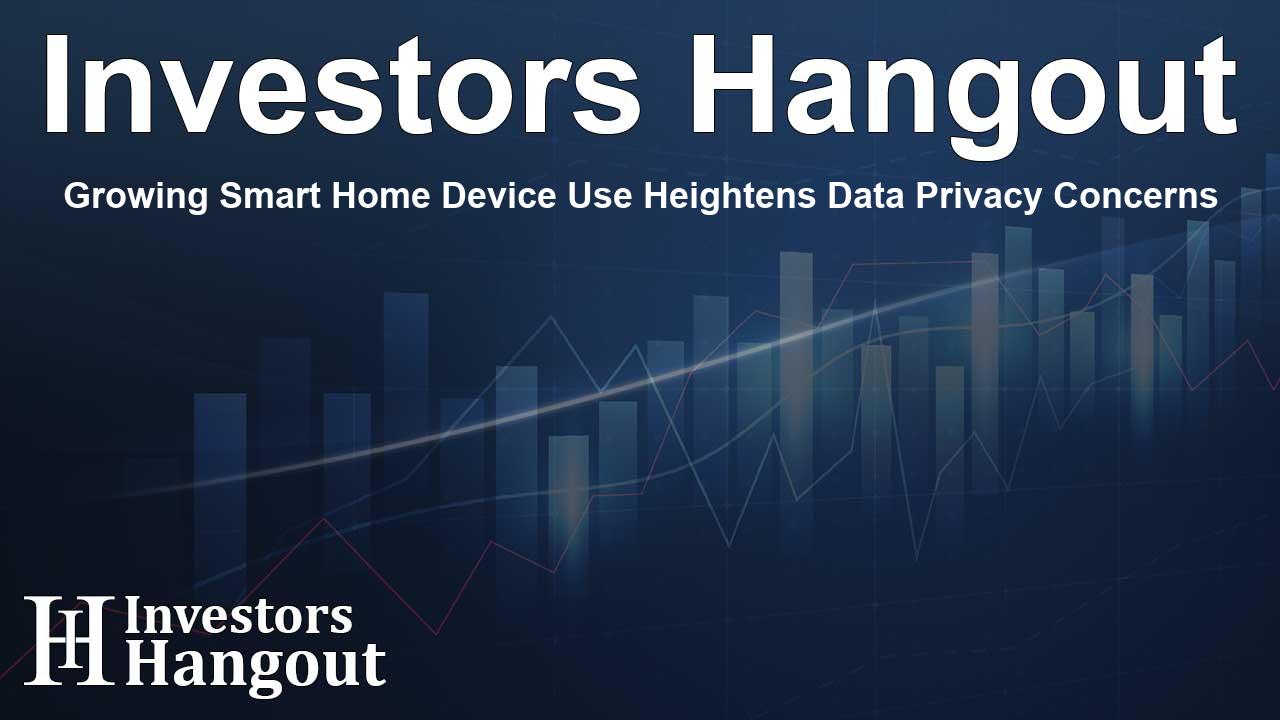Growing Smart Home Device Use Heightens Data Privacy Concerns

Concerns About Data Privacy in Smart Home Devices
In recent years, concerns surrounding data privacy have surged as technology becomes more embedded in our daily lives. A study conducted by Copeland aimed at understanding how smart home product users feel about their data privacy has revealed alarming trends. As more homeowners adopt smart thermostats, appliances, and other smart devices, their apprehensions over data security are growing.
The Rise of Smart Home Ownership
Homeowners are enthusiastically embracing smart home technology. The usage of smart devices such as thermostats, TVs, and various appliances has significantly increased since 2022. Yet, this enthusiasm comes with growing concern over how their data is managed. The findings from Copeland's second 'Smart Home Data Privacy' survey indicate that while the rise in ownership of these devices is clear, so too is the alarm over data privacy.
Understanding of Data Collection
Only a fraction of homeowners truly understand how data from their smart devices is collected and utilized. The survey showed that over half of the participants, specifically 52%, are unaware of the methods used to gather data from smart thermostats. This critical gap in understanding raises important questions about consumer awareness and manufacturer transparency.
Consumer Trust and Smart Technology
Interestingly, the confidence in manufacturers appears divided. Among homeowners who do not own a smart thermostat, only 58% trust that manufacturers handle their data responsibly. In contrast, 73% of those who do own a smart thermostat feel the same way. This disparity hints at potential barriers preventing non-owners from transitioning to smart technology.
The Push for Better Privacy Measures
Despite these apprehensions, homeowners are willing to take action for improved privacy. Seven out of ten homeowners expressed their readiness to replace their current thermostats with models that prioritize data privacy. This willingness indicates a shift towards prioritizing data security within the smart technology marketplace, particularly among younger generations, where the interest in privacy reaches up to 80% among millennials.
Copeland's Commitment to Data Privacy
Copeland, a leading player in the HVAC industry and the creator of the highly-rated Sensi thermostat, has been proactive about data privacy. In 2022, the company introduced a formal privacy pledge, emphasizing its commitment to safeguarding user data. Unlike many competitors, Copeland does not use data collected from smart thermostats for advertising purposes and maintains strict protocols against selling users' personal information.
Educating Consumers About Data Security
As the demand for smart home products continues to rise, it becomes increasingly essential for manufacturers to communicate their privacy policies effectively. Brendan O’Toole, Vice President of Smart Home and Energy Management at Copeland, highlights the importance of ensuring that homeowners are informed about how their data is utilized. This transparency could lead to greater consumer trust and adoption of smart home technologies.
Methodology of the Study
The recent market research study was conducted by a team from Copeland Marketing Research & Insights, utilizing a questionnaire designed by FleishmanHillard. The study engaged a representative group of 2,000 U.S. homeowners, ensuring statistically significant findings at a 95% confidence level.
About Copeland
Copeland is a pioneer in sustainable solutions for heating, cooling, and refrigeration. With a global workforce of over 18,000 and operations in more than 40 countries, Copeland is dedicated to lowering carbon emissions and promoting energy efficiency. The company’s innovations address pressing issues like climate change and cater to a diverse clientele across various sectors. For further information about Copeland and its impactful solutions, details can be found on their official website.
Frequently Asked Questions
What prompted Copeland's survey on data privacy?
The survey aimed to understand the concerns of homeowners regarding data privacy as the use of smart home devices continues to rise.
What did the survey reveal about homeowner awareness?
The survey highlighted that over half of homeowners are unaware of how their data is collected from smart thermostats.
How does Copeland approach data privacy?
Copeland prioritizes data privacy and has never sold user data or used smart thermostat activity for advertisement purposes.
Are homeowners willing to switch to more private devices?
Yes, the survey found that 70% of homeowners would replace their thermostat for better privacy options.
Why is consumer education important in data privacy?
Educating consumers helps build trust and ensures they are informed about how their data is being used by manufacturers.
About The Author
Contact Caleb Price privately here. Or send an email with ATTN: Caleb Price as the subject to contact@investorshangout.com.
About Investors Hangout
Investors Hangout is a leading online stock forum for financial discussion and learning, offering a wide range of free tools and resources. It draws in traders of all levels, who exchange market knowledge, investigate trading tactics, and keep an eye on industry developments in real time. Featuring financial articles, stock message boards, quotes, charts, company profiles, and live news updates. Through cooperative learning and a wealth of informational resources, it helps users from novices creating their first portfolios to experts honing their techniques. Join Investors Hangout today: https://investorshangout.com/
The content of this article is based on factual, publicly available information and does not represent legal, financial, or investment advice. Investors Hangout does not offer financial advice, and the author is not a licensed financial advisor. Consult a qualified advisor before making any financial or investment decisions based on this article. This article should not be considered advice to purchase, sell, or hold any securities or other investments. If any of the material provided here is inaccurate, please contact us for corrections.
